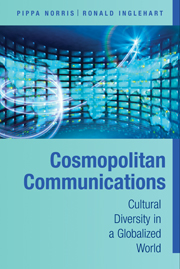Book contents
- Frontmatter
- Contents
- Tables and Figures
- Acknowledgments
- INTRODUCTION
- PART I FIREWALLS
- 3 Markets
- 4 Poverty
- 5 Classifying Societies
- PART II CONSEQUENCES
- CONCLUSIONS
- Technical Appendix A: Concepts and Measures
- Technical Appendix B: List of Countries
- Technical Appendix C: Methods and Multilevel Regression Models
- Notes
- Select Bibliography
- Index
- Titles in the Series
5 - Classifying Societies
Published online by Cambridge University Press: 05 June 2012
- Frontmatter
- Contents
- Tables and Figures
- Acknowledgments
- INTRODUCTION
- PART I FIREWALLS
- 3 Markets
- 4 Poverty
- 5 Classifying Societies
- PART II CONSEQUENCES
- CONCLUSIONS
- Technical Appendix A: Concepts and Measures
- Technical Appendix B: List of Countries
- Technical Appendix C: Methods and Multilevel Regression Models
- Notes
- Select Bibliography
- Index
- Titles in the Series
Summary
We have examined evidence of the extensive and growing international market for the exchange of audiovisual goods and news information services. Global trade in creative goods and services almost doubled in value during the past decade and now accounts for more than 7% of the world's gross domestic product. This expansion was fueled by many factors, including the diffusion of ICTs, reductions in trade barriers, and the marketing and distribution of cultural exports by transnational media corporations. The United States and Europe are the dominant producer nations on the supply side; although China's role is expanding in some sectors, developing countries generated less than 1% of global cultural exports. But which countries are fueling the demand for these products? To explore the reasons for these patterns, this chapter develops a Cosmopolitanism Index that measures the permeability of societies to inward information flows. The term ‘cosmopolitan communications’ is conceptualized to represent the degree of information flowing across national borders, which includes the extent to which people interact today within a single global community and the extent to which these networks remain localized and parochial. The terms ‘cosmopolitan’ and ‘parochial’ are employed here descriptively without any normative judgment about either type of society. Cosmopolitan communications are understood to reflect openness toward ideas and information derived from divergent cultures, as well as a growing awareness of other places and peoples, including their languages, habits, and customs.
Information
- Type
- Chapter
- Information
- Cosmopolitan CommunicationsCultural Diversity in a Globalized World, pp. 136 - 168Publisher: Cambridge University PressPrint publication year: 2009
